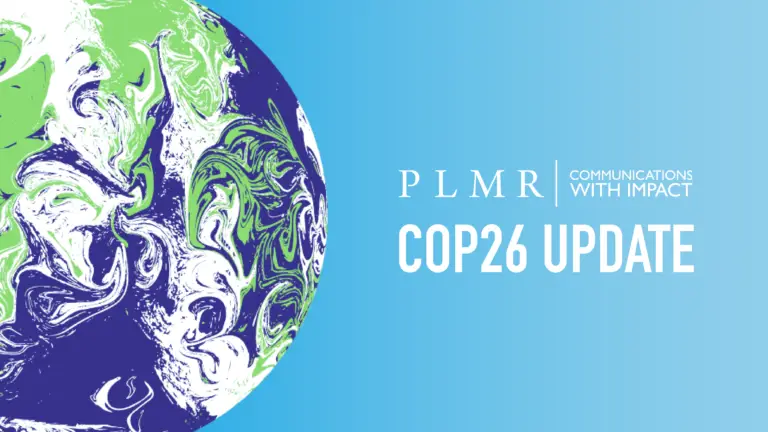- World leaders are beginning to arrive at COP, where they are being greeted by the UK Prime Minister, Boris Johnson.
- G20 leaders met over the weekend and committed to the key Paris Agreement goal of limiting global warming to 1.5 degrees Celsius above pre-industrial levels, and pledged action against overseas coal financing, but fell short on a target of zero emissions.
The next three days will be some of the most consequential of our lifetimes. From today, world leaders will gather in Glasgow for the Conference of the Parties (COP), a Conference that, success or failure, is likely to play a significant role in the future of our planet, our economies, and everything from nature and trade to international finance.
The two weeks prior have been both seminal and bizarre. G20 leaders agreed to stop financing coal power overseas (but not to phase it out at home), a video of a radio presenter appearing to claim you can grow concrete went viral, China and Australia published their climate commitments, and COP26 gained the nickname ‘CRAP26’ as a result of reports of its poor organisation. Amongst this backdrop world leaders will attempt to accelerate action towards the goals of the Paris Agreement and the UN Framework Convention on Climate Change.
Key questions for world leaders
Can the Paris Agreement targets be reached?
The ultimate goal of COP26 is for world leaders to agree on a set of targets for their countries (Nationally Determined Contributions) which keep the Paris accord on track. But with many of the existing Paris targets not yet met, the broad aim is simply to “keep 1.5°C” alive. That is, to get a deal that limits increases in the world’s temperature to 1.5 degrees by the end of the century. Other key negotiations will include agreeing on a structure of a global carbon market and measurement metrics (whether countries should set new climate targets every five years, or every 10).
It will be a challenge, with the last six years proving how politics can often take precedent over climate. The previous summit, in Madrid in 2019, failed to resolve the controversial issue of carbon markets while domestic politics risks leaving national climate pledges underfunded. Joe Biden is entering the talks still unable to push through his $555 billion green spending package which is currently being held up by Joe Manchin, a Democrat from conservative, coal-producing West Virginia.
What is the actual date to get to Net Zero?
At the beginning of this year only 30 percent of the world economy had made climate pledges. That figure is now at 80 percent – a win for Alok Sharma who has been jet-setting around the world to broker deals ahead of COP.
However, these climate pledges contain varying levels of ambition – the world is still on track for 2.7C warming even if all national goals are met. And they are on varying time scales too, with two distinct teams emerging. We have the 2050 net zero team — America, Europe, Japan — and the 2060 net zero team: China, Russia, and Saudi Arabia. At the G20 summit this weekend Beijing left its targets unchanged – to peak emissions before 2030 and achieve carbon neutrality by 2060. As we run out of time to solve the climate crisis, questions of timings are still hanging in balance.
Where will the money come from?
Finance remains a sticking point, and risk derailing the 1.5 degree target. India in particular – the third largest emitter of greenhouse gasses behind the US and China – will press developed countries on climate justice – advocating that wealthier developed nations transfer technology and finance to developing countries. An existing Paris pledge to spend $100 billion dollars a year on climate finance to help poorer countries by 2020 has still not been met ahead of this COP, and looks unlikely to be until 2023.
Will COP26 be a success?
The key question facing the world is ultimately whether this group of global leaders is able to square national level political priorities with tangible commitments and sacrifices to mitigate impact on the climate.
There is a lot at stake, not least the UK Government’s reputation on the global stage if world leaders fail to strike a deal. Facing claims of poor organisation, and the prospect of wide-spread strikes and protests, it will be an interesting week for the Government’s communications team.
The elephant in the room is of course the global pandemic. The UK is already a world-renowned COVID-19 hub and delegates are required to take lateral flow tests every day. Ultimately, the Government will be hoping COP26 doesn’t go down in history as a world-wide super spreader event that failed to solve the greatest challenge of our time.





